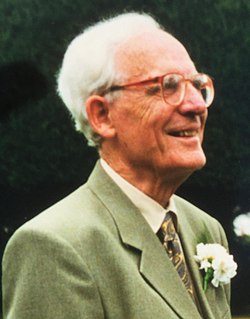A Quote by Leland Ryken
A Christian philosophy of literature begins with the same agenda of issues that any philosophy of literature addresses. Its distinctive feature is that it relates these issues to the Christian faith.
Related Quotes
One of the things I want to do in the book is to explore how philosophy can be done in literature. I start doing that in the first chapter, by introducing the idea of "philosophy by showing". What literature/philosophy shows is how to look at some important facets of life in a new way, thus changing the frame in which subsequent philosophical argument proceeds.
There is no longer a Christian mind ... the modern Christian has succumbed to secularization. He accepts religion - its morality, its worship, its spiritual culture; but he rejects the religious view of life, the view which sets all earthly issues within the context of the eternal, the view which relates all human problems social, political, cultural to the doctrinal foundations of the Christian Faith, the view which sees all things here below in terms of God's supremacy and earth's transitoriness, in terms of Heaven and Hell.
We are lucky in the United States to have our liberal arts system. In most countries, if you go to university, you have to decide for all English literature or no literature, all philosophy or no philosophy. But we have a system that is one part general education and one part specialization. If your parents say you've got to major in computer science, you can do that. But you can also take general education courses in the humanities, and usually you have to.
Certain issues in philosophy of science (having to do with observation and the definition of a theory's empirical import) had beenmisconstrued as issues in philosophy of logic and of language. With respect to modality, I hold the exact opposite: important philosophical problems concerning language have been misconstrued as relating to the content of science and the nature of the world. This is not at all new, but is the traditional nominalist line.
Christian faith is exclusivistic. Christian faith lays claim upon our lives. The sanctity of life, what we do with a life, is very definitive in the Christian faith, what we do with sexuality, what we do with marriage, all of the fundamental questions of life have points of reference for answers, and people just have an aversion for that. That I think is the biggest reason they feel hostile towards the Christian faith.
In elaborating how "philosophy by showing" works, and in defending the idea that literature and music can contribute to philosophical "showing", I am also doing something more standardly philosophical. But I view most of the book as an interweaving of philosophy and literary criticism. If that entails a broadening of a standard idea of philosophy, it's a broadening I'd like to see happen.



































